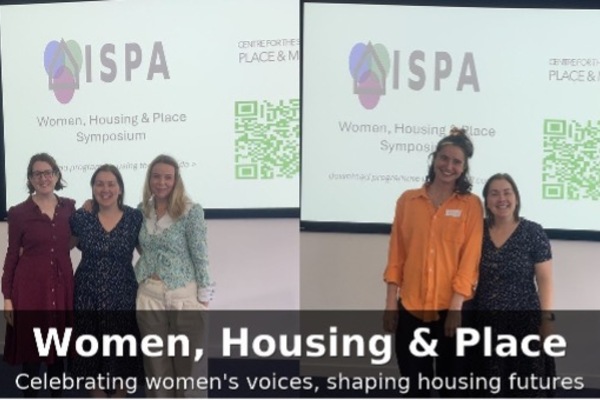“We’re doing the best we can”: Experiences of staff at a homeless hostel
Fiona Long - Cardiff University
Holbrook House is a large homeless hostel, accommodating nearly 100 men experiencing homelessness. Given that most of these men have been assessed as having a high level of need, the hostel is staffed around the clock, and as with other institutional settings, tensions are sometimes apparent between the staff and resident teams (Goffman, 1961). At Holbrook, it is common to hear residents grumble that the ‘staff do nothing’ - in remedying the noise at night, identifying finding thieves, or stopping racism, for example. Yet at the same time, staff members could often be seen rushing around, handling multiple demands at any one time. They were clearly doing something. This article therefore seeks to unpick the complaint that staff ‘do nothing’ by examining their discretionary practices in action, together with the appearance of nothingness which they may give off.
The staff at Holbrook face what I have termed ‘ordinary institutional troubles,’ the practical challenges such as overburdening, understaffing, and multiple competing demands, which they encounter whilst carrying out their roles. Against this backdrop, the staff team must decide when to intervene and when not to, when to take claims seriously and when not to, when to enforce rules and when not to. In other words, discretion is an inevitable aspect of hostel life.
Whilst the organisation’s official position on discretion is that every resident ought to be treated the same, hostel staff recognise that this is neither possible nor desirable. The staff constantly exercise discretion in situ, whenever they let somebody use the telephone, provide food outside of mealtimes, act on complaints, intervene in disputes, or nominate individuals for moves out of the hostel, amongst others. As one staff member notes, ‘you can’t have a consistent and person-centred approach, and we’re not commissioned to be consistent’ (Fieldnotes, 26/11/21).
Practicalities play an important role in discretionary practices, as the ability of staff to assist residents may simply depend on the number of staff on shift at any given time. Further, the staff team rely on their knowledge and experience when exercising discretion, so when it comes to giving out food for example, they know who is hungry and who is a blagger. It is therefore important that the staff team learn to see and learn not to see like a member of staff.
Charlie insists that this friendship is different. He has lots of money and those trying to befriend him are crack users, ‘lots of people are trying to cultivate him as a friend.’ Staff make plans to intervene as this friendship was not a ‘normal’ friendship (Fieldnotes, 27/07/21).
In transitioning from novice to old hand, staff members must ‘learn to see’ the hostel like a member of staff. In doing so, they learn to see what is ‘normal’ within the hostel context, including theft, symptoms of poor mental health, and substance use, amongst others. They must also learn to see the ‘abnormal’ in seemingly normal acts, such as the forming of friendships which pose a threat of exploitation.
A man storms through reception, yanks the door so hard that it slams into the wall, and shouts, ‘no-one’s supporting me to move, I’m gonna jump off the bridge now.’ Adrian tells Elizabeth, ‘I think he refused a place,’ she responds, ‘he did’ and they say no more of it (Fieldnotes, 22/09/2021).
At the same time, the staff must also ‘learn not to see,’ as it would be impossible for them to respond to every complaint, threat, and request. This involves learning when they should take matters seriously and when they can safely turn a blind eye. The staff place necessary limits on what they see, and what sits on the peripheries of their vision and they do not have the capacity to address. In the above extract, Adrian and Elizabeth are able to quickly identify that the man’s threat of suicide is an empty one, a response to not being offered a place in the area he wants, enabling them to dismiss it and carry on with more pressing tasks.
From the residents’ perspective, the staff may have been seen as ‘doing nothing’ in response to this threat, just as they did nothing about the noise at night or racist comments. However, from the staff’s perspective, they are faced with a range of ordinary institutional troubles, which makes it impossible to respond to each and every threat of this kind.
About the author: Fiona Long recently completed her PhD at Cardiff University, which is titled ‘Interactional barriers to exiting homelessness: An ethnographic study of a homeless hostel.’ This blog post, and the paper presented at the 2024 HSA Conference, are taken from one of the thesis’ findings chapters, which focuses on the discretionary practices of hostel staff.








